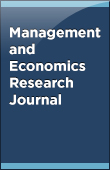


Special Issue S8: “FDI Inflows in the Brazilian Economy”
In an era marked by rapid globalization and intricate economic interconnections, FDI has emerged as a critical driver of economic growth in many developing nations. Brazil, as the largest economy in Latin America, has witnessed significant fluctuations in FDI inflows over the past decades. The question of whether FDI can stimulate domestic investment remains a topic of considerable interest among economists, policymakers, and scholars. This study delves into the complex relationship between FDI and domestic investment in Brazil, employing historical data, economic indicators, and existing scholarly research. Brazil, as a prominent emerging economy and a global economic force, has consistently attracted international investors and governments. The nexus between economic development and FDI has garnered global attention. FDI not only involves the allocation of financial resources from foreign entities but also entails technology transfer, managerial expertise, and access to international markets. While these inflows have the potential to stimulate local investment, economic growth, and job creation, concerns exist regarding their possible displacement or crowding-out effect on domestic investments. Understanding the intricate correlation between FDI and domestic investment in Brazil is of paramount importance, shaping investment policies within the country and offering valuable insights for other emerging economies seeking to strike a balance between foreign and domestic capital. This study examines the impact of FDI on domestic investment in Brazil, analyzing historical data, economic indicators, and existing literature to provide a comprehensive understanding of this complex relationship. The research draws on economic theories such as the neoclassical growth hypothesis, endogenous growth theory, and crowding-out hypothesis to explore the potential effects of FDI on domestic investment. It considers the regional disparities in FDI distribution and the sector-specific impacts of FDI in Brazil. Additionally, the study evaluates the role of government policies, trade openness, and financial development in moderating the relationship between FDI and domestic investment. Ultimately, this research aims to shed light on the multifaceted dynamics between FDI and domestic investment in Brazil. By addressing the positive and negative aspects of this relationship, it seeks to provide valuable insights for policymakers, economists, and businesses not only in the Brazilian context but also for other nations navigating the challenges and opportunities of FDI. The findings contribute to the global discourse on the impact of FDI on a nation's economic trajectory and offer guidance for informed policy decisions.
Read Article